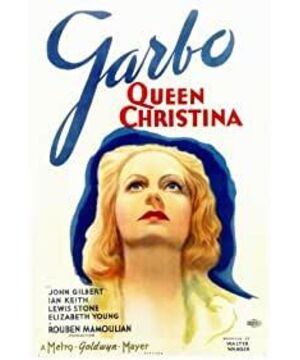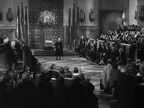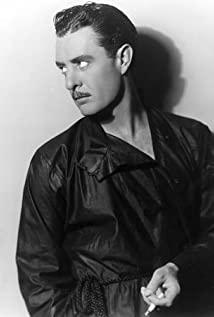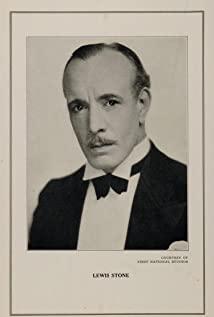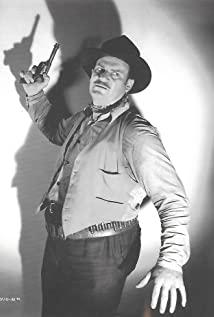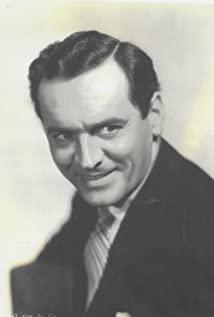In the spring of 1933, Greta Garbo met her friend Sarka Wiertel, a playwright on her way back to her hometown in Sweden. The playwright recommended Garbo to read her biography of Queen Christina of Sweden. The queen's unique character and her legendary experience made Garbo startled, and she immediately negotiated a contract with MGM Pictures. Soon after, Garbo returned to Hollywood. She brought back the script rewritten by Sarka Wiertel and a whole box of information about the Queen of Sweden. At the end of the year, MGM's "Queen of Sweden" came out. In this sense, this is a Garbo film planned by Garbo.
Garbo plays the Queen of Sweden, the reason is her heartfelt appreciation and affection for Christina. She appreciates her lonely personality, her courage to pursue freedom and daring to get rid of shackles, her noble imperial temperament, and her unbelievable talent. And Christina's personality, courage, temperament and talent are precisely the elements of Garbo's own. It is difficult to tell whether Garbo plays Christina or herself in the process of playing the Queen of Sweden. Isn't Garbo also trying his best to get rid of the star's halo and do his best to be a comfortable "me"? Isn't she also unwilling to go with the flow and take care of herself? Isn't she doing her own way and retreating bravely? Isn't she also willing to live in seclusion and enjoy herself? How similar Queen Christina and Greta Garbo are. Under this impulse of artistic creation, Garbo's success in shaping Christina is justified. At that time, Garbo is already a world-renowned star. For more than ten years, the ups and downs of the silver sea have embraced honors and garlands; half-life experience of social life has tasted the warmth and sweetness of the world. With such a rich accumulation of art and life, Garbo's heart and spirit are full, confident and wealthy like a queen. While she played Christina, she also ascended to the throne of the art palace, reaching the pinnacle of her performing arts glory.
The film basically respects history. The queen of Sweden in history has an aloof temperament and reads many books. She was born in the war years, and because she will be a king, she was raised as a boy since she was a child, and she likes to wear men's clothing. However, she has no interest in government affairs, especially in successive years of wars. She abdicated at the age of 27 because she changed her religious beliefs and devoted herself to the art research she loved, not for love. The reason why the film changed the fundamental reason for the Queen’s abdication was that on the one hand, it was because of the artistic needs of the work, which made the film more dramatic and legendary; on the other hand, it also made the work closer to Garbo himself-MGM Films. The company's cash cow makes the film more viewing value and box office value. But as a biographical film, "Queen of Sweden" has always followed a principle, that is, Christina pursues the main line of personality freedom, and she has worked hard. In order to make the film a success, the entire production process is revolving around Garbo. The screenwriter and director of "Queen of Sweden" are all friends of Garbo; John Gilbert, who plays the Spanish envoy, was personally selected by Garbo (Originally, the role of Antonio was played by Lawrence Oliver, but in the love scene Oliver did not enter the play, Garbo denied him and clicked Gilbert, although the facts of the film proved that Gilbert played Antonio was not successful); the film’s photographer William Daniels, the artist Alexander Trubau Her husband, composer Herbert Stosat and costume designer Adrian, these important creators are Garbo’s favorite partners. They made great efforts to ensure the success of "Queen of Sweden" and to make Garbo shine with the most dazzling brilliance in the film. It can be said that "Queen of Sweden" is a typical product under the star system.
Although Garbo is a big star, her star luck is not good. Before "The Queen of Sweden", she had already made 15 films in Hollywood. Due to the high commercialization of Hollywood and the American taste of her works, Garbo has not yet encountered a film that can fully utilize her acting skills and personality, "The Queen of Sweden" "Brought her a chance. Garbo did not live up to the expectations of the collaborators. She showed her potential aptitude and another aspect of her beauty in the film. In the film, Garbo's menswear looks chic and handsome, which is very lovable. In film works (not talking about drama here), there is no shortage of roles for men disguising themselves as women or women disguising themselves as men. Many of the characters disguised as women have comedy flavors, and the audience can't help but laugh because of their twitchy attitudes or their full-blown appearances. Female characters disguised as men are often the first to attract the audience’s attention with their freshness and beauty. Female characters disguised as men are easily called heroines and heroines, and win the audience with their decent temperament. Of goodwill. When this kind of potential female aptitude appears on the screen in a masculine package, it often unifies the beauty of masculinity and the beauty of femininity in one character, which can easily arouse the potential aesthetic needs of people (audiences). Because this kind of image is rare in real life, it is closer to the shadow of people's ideals. Garbo has become a typical beauty on the screen because of the types of roles she played in the past. Her feminine beauty is famous. But in "Queen of Sweden", after the director, especially costume designer Adrian's ingenious design and packaging, Garbo shines on the screen with a masculine female image. When two riders with superb riding skills, abundance and grace appear on the screen, it is difficult for the audience to associate the riders with the women at once. When the rider took off his cloak and hat to face the camera, the audience could see that the young man in breeches and riding boots turned out to be Queen Christina as an adult. The mood of the audience was mobilized all at once. Especially the costume of Garbo dressed as a young gentleman in the small hotel is so close to Garbo's own body and temperament and Christina's inner spirit. The beauty of appearance and inner beauty are perfectly unified here. The effect of this kind of character modeling on the coherence and development of the plot and the preparation of the character's personality greatly exceeds the audience's expectations. The shape and costume play a pivotal role in "The Queen of Sweden".
Garbo fully demonstrated her innate and otherworldly temperament in "The Queen of Sweden". Her face always has a charming and unpredictable look. Whether it is men's or women's Christina, her handsome face is always full of heroism, which gives her an already beautiful face. It is covered with a veil of mystery, which adds a bit of illusion of reality and illusion, and makes people feel that she is both in reality and in imagination. This is Garbo's interpretation of Christina and also of herself. The tone that Garbo set for the character set the tone for her performance in this film.
In the film, from the moment the audience comes into contact with the adult Christina, government affairs and marriage bother her. Take the film as a typical day as an example. Early in the morning, Christina curled up on the bed and read a book, which was her only happiness and relaxation. Since Age asked her to get up, she didn't belong to herself anymore. Christina dresses, washes her face, eats, and receives Alba at a very fast speed. When Garbo performs the morning wake-up process, her movements are very coherent and neat, without the powdery air of the boudoir, and she is free and easy to show women. The unique femininity, the sense of proportion is just right. Then, as the king, he met the French envoys and her ministers. Christina convinced the foreign envoys and her ministers with her elegant demeanor and broad knowledge. In an important scene of discussing whether it is for war or peace, Garbo's Christina is able to control the fierce dispute between the main battle party and the faction with ease, and the rhythm is very reasonable. With her characteristic low, slightly hoarse but penetrating voice, Garbo plausibly confessed the importance of peace to Sweden. This paragraph, which was originally like a personal declaration, once flowed out of Garbo's mouth, it was like a tuned poem. It was not only beautiful and pleasant, but also fully expressed the emperor's tolerance and majesty. Here, Garbo not only expresses his thoughts, but the audience also gets the most beautiful artistic enjoyment from it. Next is the confrontation with Oxen Steeler's repeated persuasion to marry and Magnus' entanglement. When the troubled Christina shouted angrily "I will die alone", the audience fully recognized the queen's pursuit of freedom. When Garbo dealt with Christina in this situation, he used her aggressive aura to confront the choice imposed on her on the grounds of the interests of the country and the people, or for the purpose of personal interests. Power and freedom.
In the second half of the film, Garbo begins to show another aspect of Christina as an ordinary person. When Christina saw a group of passers-by getting stuck in a car, their embarrassment made her laugh, and then came up with an idea to help her out of the predicament, and then turned her horse's head and deliberately circled the carriage half a circle and walked away. In just a few shots, Christina's clever and mischievous character is outlined. The play in the hotel is the most brilliant part of the film. When the carriage owner saw the handsome aristocratic youth again, his embarrassment was no less than getting stuck in the carriage again, but he soon developed a good impression of this handsome and outstanding-talking guy. When a bunch of vulgar drunks bet on the number of lovers of the Queen of Sweden and fisted each other, the Queen of Garbo solved the problem of men with a masculine manner and way. Her humorous language and suave manners made everyone present. The man was eclipsed. When she was invited to sleep in the same bed with another man, Garbo showed the kind of embarrassment that was difficult to argue with, and could not help but to be a hero, which not only contrasted the plot, but also whipped the audience's appetite. When Christina appeared on the screen again, she changed her appearance completely. She was radiant and radiant in the women's nightgown. When Garbo expressed the queen immersed in the sweetness of love, she did not use words, but used a set of poetic dance moves. She fondly caressed the furnishings in the room, her movements were soothing, and her movements flowed from her gestures to her feet. The tenderness and happiness that overflowed in my heart. The language of the soul is used on Garbo's Christina, it is a magical touch, and it portrays the queen's rich emotional world incisively and vividly. The queen at this time is no longer a king dressed as a man, but the happy woman she has long wanted, and Garbo's acting skills have reached the point of perfection.
The resignation of the throne is the climax of the film. When Christina calmly surrendered the ball and the scepter, took off the crown, took off the robe, and stepped off the throne, the ministers and the audience felt a sense of loss at the same time—the reality she took away has always been in their hearts. The pride and dignity of the Kingdom of Sweden. When Garbo grasped this scene, both rigidity and softness, the words, actions, and demeanor reveal a secular mortal's irresistible and unattainable dignity and majesty. Christina abandoned the throne that the world admired to pursue herself, but what awaits her is the remains of her lover. Inspired by the director, when Garbo performed Christina, who was exhausted and desperate, she moved forward independently, without a trace of expression on her face and eyes. She is like a statue, like a goddess, leaving endless reveries to the audience... This shot has always been hailed as a classic in film history and a model for latecomers to learn film performance. Garbo wrote a biography for the Queen of Sweden and also set a monument for himself. If we can see the soul of poets and painters in a poem or a painting, then in "The Queen of Sweden", we can also appreciate the soul of Garbo's film actor full of life and aura.
View more about Queen Christina reviews


